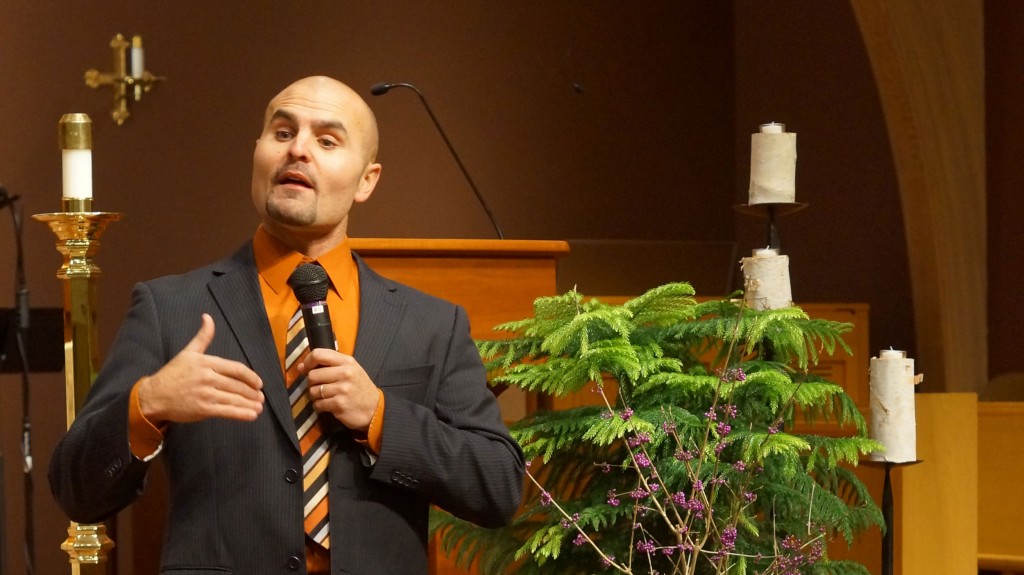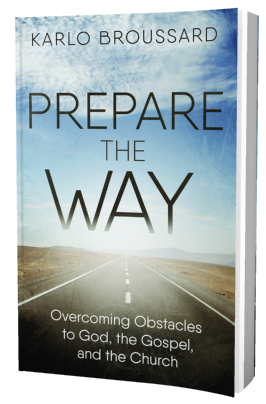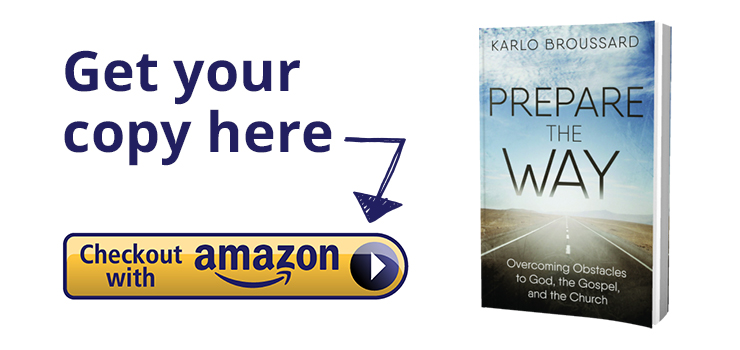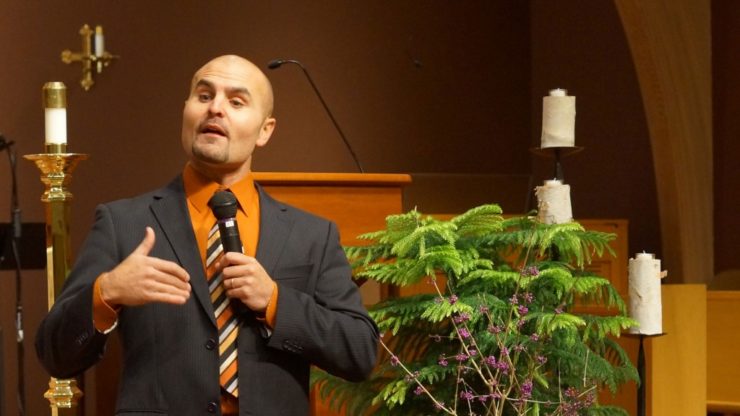
Why does it seem like so many people reject Christianity? What’s holding them back? Even when we make a strong case for God, many people just shrug their shoulders and walk away.
Those are the questions Karlo Broussard answers in his new book, Prepare the Way: Overcoming Obstacles to God, the Gospel, and the Church.
Karlo affirms that it’s not enough just to have good arguments for Christianity. Most of us know from experience that we can share the best argument with skeptical friends or family, even with great precision, and it nevertheless falls flat. We’ve all been there.
But why? They were unprepared to receive it. Something blocked the reception. To make headway, we first need to clear away any barriers on the path.
Karlo is a master at this—one of the best I’ve ever seen. I’ve watched for years, with great admiration, as he talks with radio callers or commenters and calmly helps them overcome these preliminary hazards so that, to switch metaphors, he can clear a runaway for his arguments to land.
If you’re interested in sharing your faith, this is one of the most important strategies you could learn, and this book will show you how.
Today I sit down with Karlo to learn about his new book. Enjoy!
BRANDON VOGT: Who is this book for, and what will the reader walk away with?
KARLO BROUSSARD: The book is primarily for Catholics who are looking for ways to answer those common objections that unbelievers and skeptics have to truth, God, Jesus, Christianity, and the Church. However, Christians of all denominations can benefit from the sections on truth, God, Jesus, and Christianity, since these topics transcend denominational boundaries.
Ultimately, my hope is that the reader will walk away from reading the book with a greater confidence in knowing that there are effective ways to address the concerns of unbelievers and skeptics, and to feel equipped to engage them in dialogue and prepare a way for the Lord.
BRANDON VOGT: What are the three most common roadblocks you see in people when it comes to acceptance of Catholic teaching?
 KARLO BROUSSARD: Well, if we’re talking about Protestants, the answer would be the Catholic teaching on Mary. But since the book is directed toward the concerns of unbelievers, I’d have to say the problem of evil is the greatest roadblock. “How can I believe in a God who is all-good and all-loving,” they say, “when he allows so much sin and suffering in the world?” That’s why I devote three chapters to this one topic.
KARLO BROUSSARD: Well, if we’re talking about Protestants, the answer would be the Catholic teaching on Mary. But since the book is directed toward the concerns of unbelievers, I’d have to say the problem of evil is the greatest roadblock. “How can I believe in a God who is all-good and all-loving,” they say, “when he allows so much sin and suffering in the world?” That’s why I devote three chapters to this one topic.
Related to the problem of evil are the problems of divine hiddenness and the doctrine of hell. Concerning the problem of divine hiddenness, unbelievers argue that if God exists, and he desires a relationship with us, then he would ensure that every honest atheist knows that he exists. Since he doesn’t do this, they argue, he must not exist.
The doctrine of hell serves as an obstacle because many unbelievers can’t reconcile it with an all-good and all-loving God. They assume that hell is some arbitrary torture chamber to which God sends people on a whim for petty crimes.
Finally, I’d have to say a third major roadblock are the Church’s moral teachings, particularly its teachings on abortion and same-sex sexual activity. Many perceive the Church’s teaching on these issues as oppressive of women and those who have same-sex attraction.
But, as I show in my book, nothing could be further from the truth. The Church’s opposition to abortion is due to its stand for protecting all innocent life, which includes not only the unborn but also women.
The Church’s condemnation of same-sex sexual activity in no way oppresses those who experience same-sex attraction. The Church says no to same-sex sexual activity because it says yes to human happiness, which same-sex sexual activity militates against. As to how we are to prepare that way, I spell it out in my book.
I guess that’s more than three.
BRANDON VOGT: When it comes to types of objections to the Faith, which do you think are most common—intellectual, personal, moral, or emotional, and why?
KARLO BROUSSARD: It really depends on whom you’re talking too. Among the intelligentsia, it’s intellectual. For the average Joe on the street, it’s more emotional.
Intellectuals tend to look at everything as a puzzle to be solved. As such, their obstacles are going to be intellectual in nature.
For example, the problem of evil for such folks is a matter of trying to figure out how to reconcile the existence of an all-good and all-loving God with sin and suffering in the world. When it comes to sexual ethics, they may argue with sophistication that same-sex sexual activity is just as much an expression of love as sexual activity between members of the opposite sex.
By contrast, when the average Joe on the street is faced with the evils of the world, he simply wants help to deal with them in a way that keeps him from despairing. He just wants the pain to go away, or at least to figure out how to deal with it.
Concerning the Church’s teaching on human sexuality, the average Joe’s negative response is normally based on emotion. He doesn’t think through the reasons why the Church opposes certain sexual behaviors. Consequently, he sees the Church’s opposition as oppressive and discriminatory.
We encounter both types of audience in our evangelistic endeavors. This is why in my book I provide strategies that deal with both intellectual and emotional obstacles.
BRANDON VOGT: It seems a lot of people think of faith as a panacea—that once they accept Christ, everything will be all right in their lives. Has that been your experience, and how close to the authentic Christian life is that perception?
KARLO BROUSSARD: If the question is, “Does Christian faith transform one’s experience of life for the better?”, then the answer is yes. I actually address this question in my chapter on removing the obstacle of hypocrites among Christians.
But if the question is, “Does Christian faith make all problems and suffering go away?”, then the answer is no. This brings us right back to the mystery of God’s permission of evil in our lives.
But as I point out in my book, particularly in the chapter on suffering, God provides us a means by which we can transform our suffering into acts of love for God and neighbor, thereby giving us a means by which we can attain our final salvation.


